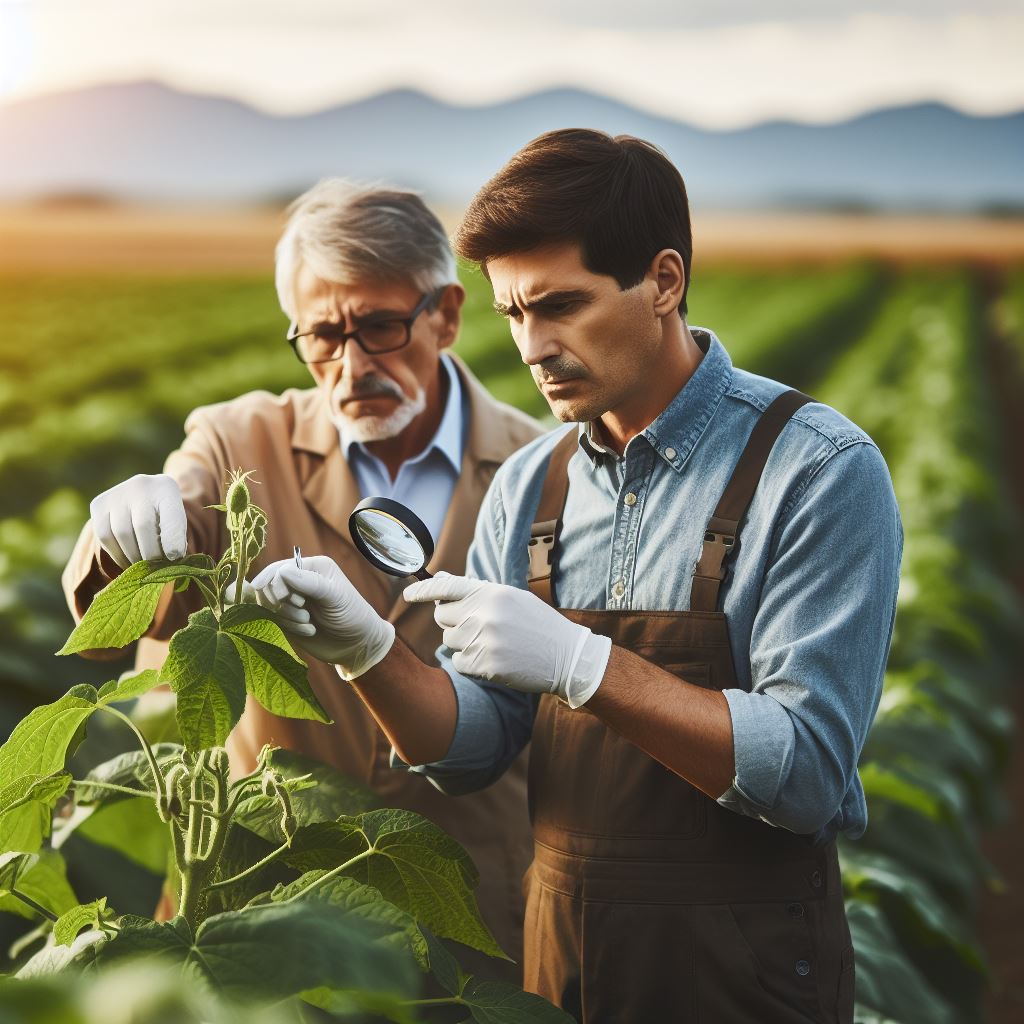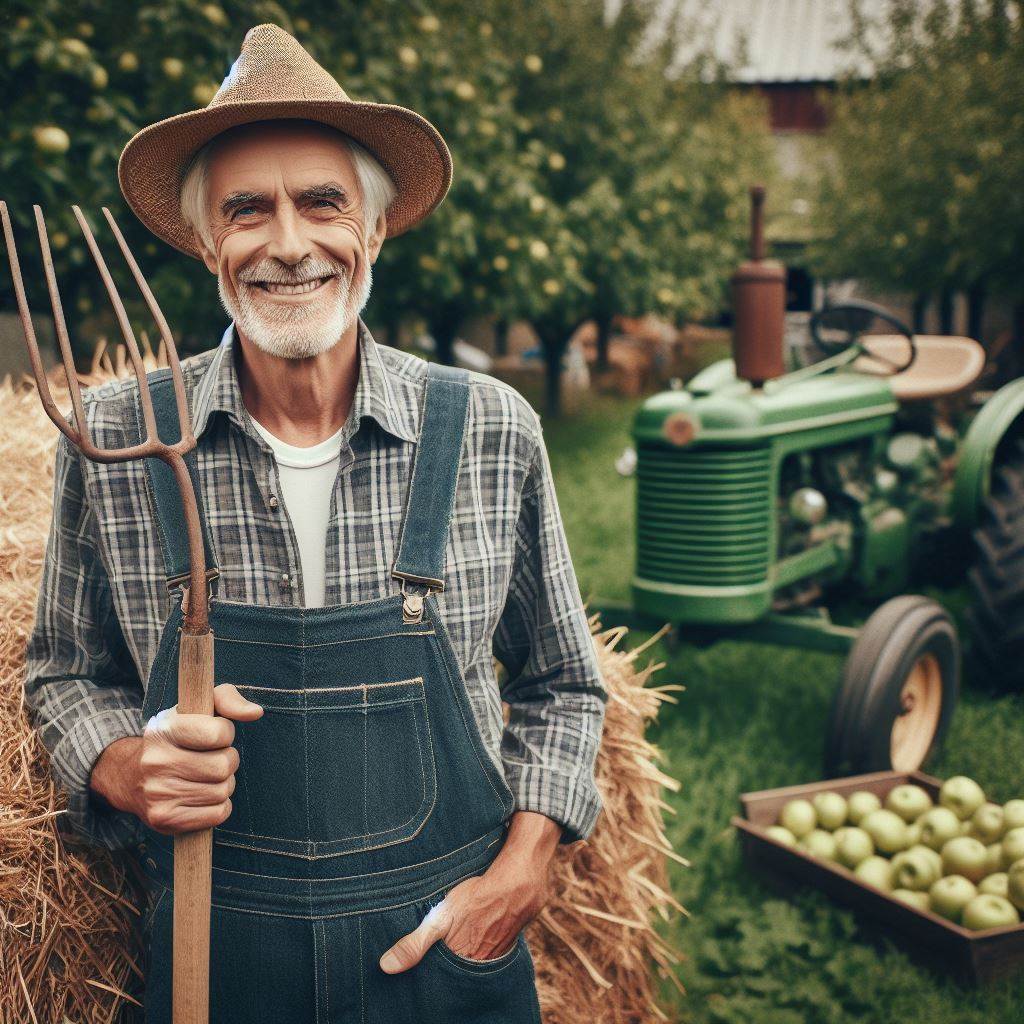Introduction
Supporting local food is crucial for several reasons.
Firstly, it helps strengthen the local economy by keeping money within the community.
Secondly, it promotes sustainability by reducing the carbon footprint associated with transporting food long distances.
Thirdly, it ensures fresher and healthier food options for consumers.
By supporting local food producers, consumers are directly contributing to the economic growth of their communities.
When money is spent on locally grown or made products, it circulates within the area, supporting local businesses and creating job opportunities.
This, in turn, leads to a more resilient and self-sufficient local economy.
Transporting food long distances requires significant energy and contributes to greenhouse gas emissions.
By choosing local food, individuals can reduce their carbon footprint and support more sustainable agricultural practices.
Local farmers often employ environmentally friendly methods such as organic farming and use fewer pesticides and chemicals.
Furthermore, local food is fresher and healthier compared to food that has traveled long distances.
Local producers typically harvest their produce closer to the time of sale, ensuring maximum nutritional value and flavor.
Additionally, since local food does not have to endure long transportation times, it is less likely to require preservatives or excessive packaging.
Basically, supporting local food is not just a trendy choice but a responsible one as well.
It has numerous benefits, including boosting the local economy, contributing to sustainability, and providing healthier food options.
Transform Your Agribusiness
Unlock your farm's potential with expert advice tailored to your needs. Get actionable steps that drive real results.
Get StartedBy making a conscious effort to purchase local products, individuals can make a positive impact on their communities and the environment.
Overview of local food trends
Increasing popularity of local food
The local food movement has gained significant traction in recent years.
Consumers are increasingly interested in knowing where their food comes from.
They seek the freshest, most flavorful produce and products grown or made close to home.
Growing consumer demand for sustainably sourced products
Conscious of the environmental impact of food production, consumers are embracing sustainability.
They actively seek products made with organic, natural ingredients, and minimize packaging waste.
This growing demand has encouraged businesses to adopt sustainable practices.
Rise of farmers markets and community-supported agriculture (CSA)
Farmers markets have become popular community gathering places where people can connect with local producers.
Browsing through stalls bursting with fresh fruits, vegetables, artisanal bread, and homemade goods has become a favorite weekend activity.
Community-supported agriculture programs offer individuals the opportunity to buy shares of a local farm’s produce.
Members receive regular deliveries of fresh, seasonal produce directly from the farm.
This direct connection between farmers and consumers supports local economies and fosters a sense of community.
Exciting local food events to attend
- Annual Food Festival – Taste a variety of local dishes, attend cooking demonstrations, and enjoy live music.
- Locavore Dinner Series – Celebrate local food at exclusive farm-to-table dinners highlighting seasonal ingredients.
- Farm Tours – Experience a day in the life of a local farmer and gain insights into sustainable agriculture practices.
- Community Cooking Classes – Learn how to prepare delicious meals using locally sourced ingredients.
- Food and Wine Pairing Events – Explore the perfect marriage of local wine and cuisine.
- Harvest Festivals – Celebrate the bounty of the season with agricultural displays, traditional crafts, and family-friendly activities.
- Sustainable Food Conferences – Engage in discussions about the future of food systems and learn from industry experts.
- Farm-to-Bottle Brewery Tours – Discover the process of brewing with locally grown ingredients.
- Food Entrepreneurship Workshops – Gain insights into starting your own local food business.
- Foraging Trips – Learn about edible plants and fungi while exploring local forests and meadows.
The rise of local food trends reflects a growing awareness and desire for sustainable, community-driven food systems.
Attending local food events allows individuals to support their local economy, connect with producers, and enjoy delicious, fresh food.
Be sure not to miss these exciting opportunities to immerse yourself in the local food movement!
Read: Foraging 101: Safe & Tasty Edibles
Local food events in the community
In this section, we will explore the local food events that take place in the community.
Attending these events is crucial for various reasons and offers numerous benefits to participants.
Importance of Attending Local Food Events
Participating in local food events is more than just a fun outing; it holds great significance for the community.
These events bring people together and strengthen the bond within the locality.
One primary reason for attending these events is to support local farmers and producers.
By purchasing their goods directly from the source, we contribute to the growth and sustainability of the local economy.
This support is essential for small-scale farmers who often face challenges in competing with larger agricultural corporations.
Moreover, attending local food events allows us to access fresh and seasonal produce.
Showcase Your Farming Business
Publish your professional farming services profile on our blog for a one-time fee of $200 and reach a dedicated audience of farmers and agribusiness owners.
Publish Your ProfileUnlike the supermarket, where produce may be transported long distances, the food at local events is often harvested just before the event, ensuring optimal freshness and flavor.
Benefits of Attending Local Food Events
Apart from supporting local farmers and accessing fresh produce, attending these events offers a plethora of other advantages.
Let’s explore a few:
- Exposure to diverse culinary experiences: Local food events often feature a wide variety of cuisines and cooking techniques. It presents an opportunity to explore different flavors and expand our culinary boundaries.
- Promoting sustainable practices: Many local food events focus on sustainability. Through interactive exhibits and workshops, they educate attendees about eco-friendly practices and encourage mindful consumption.
- Connecting with local producers: Attending these events allows you to meet the people behind the food you consume. You can have conversations with farmers, chefs, and artisans, building a deeper connection with the local food community.
Specific Events in the Area
Now let’s take a closer look at some specific local food events that you wouldn’t want to miss:
- Annual Farmers Market Festival: This event celebrates the abundance of local produce and the hard work put in by farmers. With live music, cooking demonstrations, and food tastings, it’s an experience for the whole family to enjoy.
- Farm-to-Table Dinner Hosted by a Local Chef: A renowned local chef collaborates with nearby farmers to create an exquisite dining experience. Every dish is crafted using fresh, locally sourced ingredients, showcasing the flavors of the region.
- Sustainability Fair featuring Local Food Vendors: This event offers a comprehensive understanding of sustainable living. Local food vendors showcase their products, while experts conduct workshops on composting, urban farming, and other sustainability practices.
Attending these local food events not only supports the community but also provides an enriching experience.
So mark your calendars and immerse yourself in the vibrant world of food in your locality!
Read: Community Gardens: Join the Movement
Local Food Festivals and Fairs
Various food festivals and fairs happening in the region
- Taste of California: Every year, the Taste of California festival brings together local restaurants and food vendors to showcase the region’s diverse culinary scene.
- Atlanta Food Fest: This annual event celebrates the unique flavors of Atlanta with a wide array of food stalls offering traditional and innovative dishes.
- Farm-to-Table Festival: This festival focuses on promoting sustainable farming practices and features local farmers, chefs, and artisans.
Their unique features and attractions
- Local Artisan Market: Many of these festivals include a market where local artisans display and sell their handmade crafts and products.
- Live Cooking Demonstrations: Renowned chefs and local culinary experts often give live cooking demonstrations, offering tips and tricks to attendees.
- Food Contests: These events usually feature food contests like chili cook-offs or pie baking competitions, adding an element of excitement and friendly rivalry among participants.
- Entertainment: In addition to the food-focused activities, these festivals often include live music, dance performances, and other forms of entertainment.
Significance of these events in promoting local food and community involvement
- Supporting Local Businesses: These festivals provide a platform for small-scale local food vendors, restaurants, and farms to showcase their offerings to a larger audience, boosting their sales and visibility.
- Celebrating Local Flavors: By featuring local ingredients and dishes, these events foster a sense of pride and appreciation for the region’s food heritage.
- Promoting Sustainable Practices: Many of these festivals focus on promoting sustainable farming, highlighting the importance of locally sourced and organic produce.
- Community Involvement: These events bring together community members, fostering a sense of belonging and encouraging people to support local businesses and initiatives.
- Educational Opportunities: For attendees, these festivals offer a chance to learn about different cuisines, cooking techniques, and the importance of eating locally.
- Cultural Exchange: Local food festivals often attract visitors from different backgrounds, allowing for cultural exchange and the discovery of new flavors and traditions.
- Economic Impact: These events can have a significant economic impact, attracting tourists and generating revenue for the local economy through increased tourism, job creation, and spending on local products.
In essence, local food festivals and fairs play a crucial role in promoting local food culture, supporting small businesses, and fostering community involvement.
These events not only provide a platform for showcasing the region’s culinary talents but also celebrate local flavors, encourage sustainable practices, and create opportunities for cultural exchange and education.
By attending these festivals, individuals can contribute to the growth and sustainability of their local food scene while enjoying the vibrant atmosphere and diverse culinary offerings.
Read: Eating Local on a Budget: Tips & Tricks

Farm tours and workshops
Attending farm tours and workshops is a fantastic way to deepen our understanding of local food production.
These events allow us to witness firsthand the hard work and dedication that goes into cultivating and harvesting the food we consume.
By actively participating in these experiences, we can learn valuable insights about sustainable practices and the importance of supporting local farmers.
Benefits of participating in farm tours and workshops
The benefits of farm tours and workshops are unparalleled. Instead of merely reading about farming techniques or watching videos, participants have the opportunity to engage in hands-on learning.
They can ask questions, try out different farming tools, and directly observe the effects of various practices on crop growth.
This immersive experience fosters a greater understanding and appreciation for the challenges faced by farmers and the broader agricultural industry.
Furthermore, farm tours and workshops allow us to forge connections with local farmers.
By engaging in conversations and learning directly from them, we can gain valuable insights and perspectives that are not accessible through other means.
These connections can be valuable for both the consumers and the farmers, as it creates a bridge between the two and fosters a sense of community around local food production.
Different types of farms open for tours
When it comes to farm tours, there is a wide variety of options available to suit different interests.
Organic farms offer the chance to learn about sustainable and eco-friendly agricultural practices.
Visitors can witness the process of growing crops without the use of harmful pesticides or chemical fertilizers, which ensures the production of healthy and chemical-free food.
Dairy farms are another popular choice for tours, allowing visitors to learn about the dairy industry and experience firsthand the daily routines involved in milking cows and processing dairy products.
This is a great opportunity to gain insight into the challenges faced by dairy farmers and appreciate the hard work that goes into providing us with fresh milk and dairy products.
For those living in urban environments, urban farms provide a unique perspective on food production.
These farms utilize creative methods to grow food in limited spaces, like rooftops or vertical gardens.
By visiting urban farms, participants can learn about the innovative techniques used to overcome the challenges of urban farming and witness the positive impact it has on local communities.
Information on upcoming farm tours and workshops in the community
If you’re interested in attending farm tours and workshops in your community, there are several upcoming events to look out for.
Make sure to mark your calendars and take advantage of these educational and entertaining opportunities.
Here are a few upcoming farm tours and workshops:
- Organic Farm Tour: Date: October 26, Time: 4pm, Location: Atlanta
- Dairy Farm Workshop: Date: May 19, Time: 2pm, Location: Chicago
- Urban Farm Tour: Date: August 23, Time: 11am, Location: California
Attending these events will allow you to learn, connect, and support local farmers.
By participating in farm tours and workshops, you can gain invaluable knowledge about sustainable farming practices and the importance of local food production.
Don’t miss out on these enlightening experiences!
Read: Slow Food Movement: What’s the Hype?
Engage with local food organizations
The role of local food organizations in promoting sustainable food systems
Local food organizations play a crucial role in promoting sustainable food systems within their communities.
These organizations are dedicated to connecting local farmers, producers, and consumers to create a more sustainable and resilient food system.
By supporting local food organizations, individuals can make a significant impact on reducing their carbon footprint, supporting local economies, and ensuring access to fresh, healthy, and locally produced food.
These organizations often work towards eliminating or reducing food waste, supporting regenerative agriculture practices, and promoting biodiversity.
Encouragement for readers to get involved with these organizations
Getting involved with local food organizations is an excellent way for individuals to actively participate in creating a more sustainable food system.
Showcase Your Farming Business
Publish your professional farming services profile on our blog for a one-time fee of $200 and reach a dedicated audience of farmers and agribusiness owners.
Publish Your ProfileThey can join as volunteers, become members, or even serve on the board of directors.
These opportunities allow individuals to contribute their skills and knowledge towards building a stronger local food community.
Readers can contribute to local food organizations by attending their events, workshops, and farmers’ markets, promoting local food on social media, or even purchasing directly from local farmers and producers.
By supporting these organizations, individuals can help create a thriving local food culture and support small-scale, sustainable farming practices.
Contact information for local food organizations in the area
Here is a list of local food organizations that readers can get involved with, along with their contact information:
Local Food Alliance
- Website: www.localfoodalliance.org
- Email: [email protected]
- Phone: (555) 123-4567
Farm-to-Table Organization
- Website: www.farmtotable.org
- Email: [email protected]
- Phone: (555) 987-6543
Community Food Co-op
- Website: www.communityfoodcoop.org
- Email: [email protected]
- Phone: (555) 789-1234
These organizations offer various programs and initiatives focused on supporting local farmers, educating the community about sustainable food systems, and promoting access to fresh, locally sourced food.
They welcome individuals of all backgrounds and skill levels to participate and make a positive impact on the local food scene.
As individuals engage with these organizations, they will not only contribute to the betterment of their local food system but also gain a deeper understanding of the challenges and opportunities within their community.
By working together, we can create a more sustainable and resilient food system that benefits not only ourselves but also future generations.
In a nutshell, local food organizations play a vital role in promoting sustainable food systems.
Through their initiatives, they connect local farmers, producers, and consumers, fostering a sense of community and supporting local economies.
Readers are encouraged to get involved with these organizations by attending events, volunteering, or becoming members.
By actively engaging with local food organizations, individuals can contribute to a more sustainable food future.
Conclusion
As we’ve explored, supporting local food and attending community food events benefits both people and the planet.
These trends connect us more deeply to our regions, health, farmers, culture, and environment.
Ultimately, local food celebrations enliven communities while sustaining traditions.
Let’s recap key reasons we must keep these vital events thriving.
Farmers markets, food festivals, and farm-to-table dinners bolster local economies and preserve farmlands.
Chefs and home cooks gain access to fresh, seasonal ingredients from nearby producers.
Plus, locavores shrink their carbon footprints by purchasing regionally.
As a bonus, such culinary gatherings build relationships and share knowledge between growers and eaters.
With summer festival season getting underway, I warmly encourage readers to participate.
Check out festivals showcasing your state’s peaches, tomatoes, maple syrup, or wild salmon.
Meet the farmers, chefs, and artisans.
Savor the community pride and atmosphere alongside the tasty seasonal eats and drinks.
Supporting these hyperlocal food events renews our connections, culture, environment, and health – one bite at a time.




